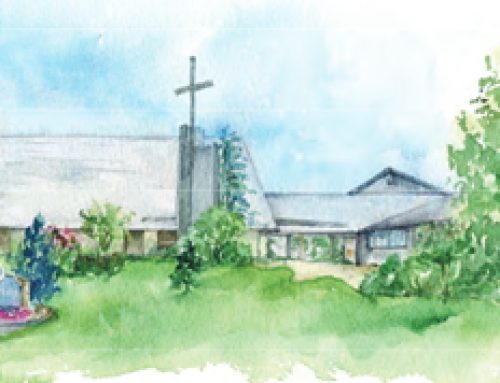Fifth Sunday of Lent
“God never tires of forgiving us; we are the ones who tire of seeking his mercy.”
POPE FRANCIS
FROM THE PASTOR’S DESK
My Dear Parishioners:
There was a wise Persian king who had four sons. The king saw that his chief responsibility was to make sure that his sons grew up with wisdom knowing how to live. So, one winter day he said to eldest son, “Look I own a farm in the next village and in that farm, there is a huge mango tree. It costs me a great deal to maintain it. I want you to go and examine this tree and make a judgment whether is worth the investment. I plan to ask your brothers to do the same.” So, the eldest son went and looked at the tree. When spring came the king sent his second son. He sent his third son in summer and his youngest son in the fall. Then he called the boys together to make their judgment. The eldest son spoke first, “Father,” he said, “this tree is nothing more than a barren stump, I would cut it down.” The second son had a different opinion, “Father,” he said, “the tree is covered with many luxurious leaves and produces much shade, but you would have to weigh whether the shade that is produced is worth the cost of maintenance.” The third son fundamentally agreed with his
brother, “I saw beautiful flowers on the tree as well but father you will have to decide whether you plan to visit this tree and enjoy the flowers. If you choose not to do this, it is not worth the cost of maintenance.” But the youngest son disagreed strongly with his brothers. “Father,” he said, “I have never seen such huge and luxurious fruit on any tree. It would bring a fortune in the marketplace. I say this tree must be maintained no matter what the cost.” The father was satisfied and smiled, “Each of you is correct, for each of you saw the tree at a different time. The lesson is clear – if you wish to be wise, you should withhold your judgment until you have seen the tree in all its seasons.”
This story relates to the Gospel because today’s passage is about judgments and how we make them. The people around Jesus were quick and ready to judge the woman who had been caught in the act of adultery. They saw her as a sinner, and they said she should be punished. Their judgment was correct, and Jesus did not debate it. But without excusing her sin Jesus chose to see the woman in a larger context. He could imagine her in a different season, in a season that was different from the barren and sinful season in which she now stood. He could imagine her in a season that was productive and full of life. Jesus challenged his listeners and challenges us to give the woman another chance, to suspend judgment in light of another season which could produce much fruit.
This larger vision of Jesus supports his frequent teaching that we should not judge others. He tells us that we should not judge because our judgments are incorrect but because they are often incomplete. There are many seasons to every person’s life. In light of the better seasons the wise person refrains from judging and making a final judgment today.
Now there is a caveat that comes with Jesus’ teaching. When he tells us that we are not to judge others he does not mean that we are to let others take advantage of us. We must make judgments to protect ourselves from those who would manipulate us or abuse us. We must make judgments to protect ourselves and those that we love from those who would harm us because of their selfishness or dysfunction. To make such judgments is not only good but necessary. But when Jesus calls us not to judge others, he asks us not to make a final judgment. We should not be too quick to write off those whom we dislike or those with whose ideas and actions we disagree. Even though we know others are wrong dead wrong, even when we are convinced that there is no way we can condone their actions, Jesus nevertheless says that we should postpone final judgment in light of the better seasons that might be produced in their lives, in light of the better people that they might someday become.
This teaching is not easy. All of us can think of people whom we are ready to judge, people that we would be quick to reject. How do we find the strength to withhold final judgment? Jesus shows us the way. In today’s Gospel when others were ready and willing to pass final judgment on the woman who was caught in adultery, he asks them to think of their weakness, to think of their sins. Jesus says anyone here who is without sin should be the first to cast a stone at her. In the same way when we are filled with anger and righteousness and ready to judge another, Jesus asks us to think of our worst season. Then we should remember the time when we messed up the most, when we acted with deep selfishness, when we hurt someone unjustly. Jesus knows that if we remember our worst season, it may give us the freedom not to judge someone in their worst season. When we remember our weakness and sin, we might find the freedom to accept another considering the better person they have the potential to become.
Jesus tells us that it is not our role to judge another. This is not because our judgment would be incorrect, but because it would be incomplete. Once we have taken steps to protect ourselves and those we love from harm, it is not our role to condemn anyone. Instead, we are asked to entrust others to God’s care, hoping that what is wrong in their life might change and what is barren in their life might in time product fruit.
Peace,
Fr. Monteleone
To read complete bulletin click here



